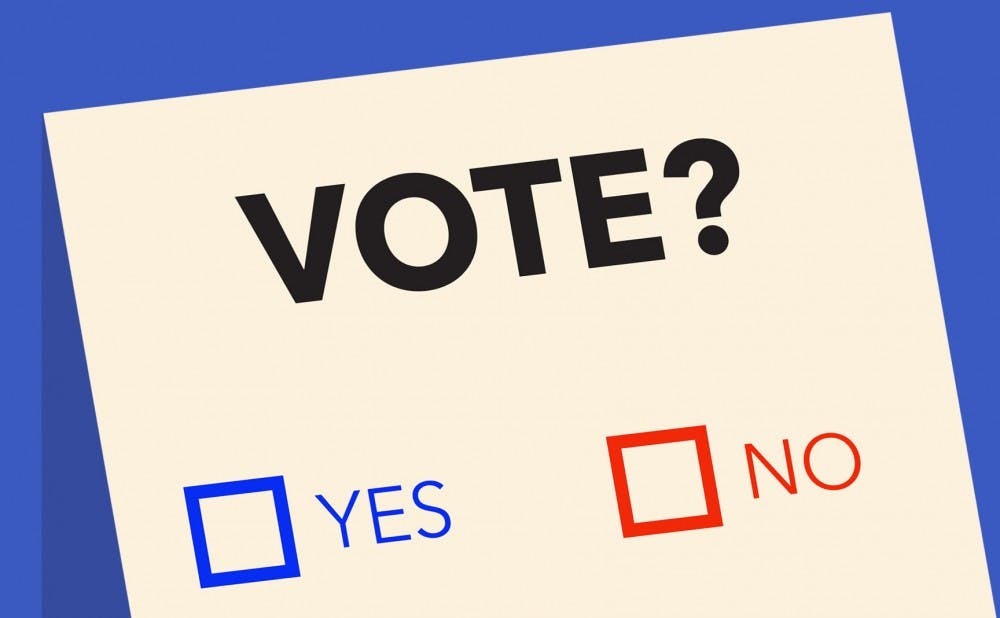The midterm elections came and went, sparking conversations across the country and Duke's campus about voting.
Although some students and Durhamites ordered their absentee ballots and flocked to the polls as soon as they could—especially since early voting took place on the bottom floor of the Richard H. Brodhead Center for Campus Life from Oct. 17 to Nov. 3—some students and faculty also raised questions regarding the meaning behind a vote in today's political climate.
Georg Vanberg, professor of political science, framed the question of why people choose to vote or not by comparing the decision to cheering on one's favorite sports team at a game. He argues that voting, like cheering at a basketball game, is not a rational act, but rather an expressive one.
“You could say it’s irrational for fans to scream or cheer because that doesn’t have an effect on the outcome, and most of us would look at you and think you’re crazy to make that kind of argument,” Vanberg said. “Most people aren’t screaming and cheering because they think they’re going to affect the outcome. They like supporting their team.”
The odds are extremely slim that any single person casts a pivotal vote in an election, according to economists Casey Mulligan and Charles Hunter, authors of “The Empirical Frequency of a Pivotal Vote.” However, voter turnout in this year’s midterms marked a 50-year high, with 49 percent of eligible voters participating in the election.
The trend of higher turnout also was visible on Duke’s campus, with a record-breaking 10,000 students and Durhamites flocking to the Brodhead Center early voting site.
But the calculus behind students’ decision to vote or not varied widely.
Senior Paul Forrester said that he chose not to vote because he thinks it is immoral. Casting a ballot, he said, would implicate him in the government’s wrongdoings, including police brutality, violence abroad and paternalistic laws that criminalize recreational drug use.
“I think that people shouldn’t vote because by voting, you’re being complicit in harms that are committed by the government,” he said. “And individuals have a duty not to be complicit in harms when that’s an option to them.”
Victoria Sorhegui, a sophomore who cast her absentee ballot in Florida, said that she voted in the midterms because it’s important for everyone to be heard. She also encouraged her friends to vote and helped them navigate the absentee ballot process if they were voting out-of-state.
“I wanted to vote because we always have those elections where it’s down to 1,000 votes, 10,000 votes, so I actually feel like my vote really counts in these elections,” she said.
Since voting is a necessary part of the United States’ democracy, elections serve as a reminder of the fact that people have a say in how they are governed, Vanberg said.
“When we get to vote, it gives us a personal experience of the fact that we live in a political system in which our political leaders are chosen by citizens and are accountable to citizens,” Vanberg said. “They may not be accountable to you or me individually because we are not pivotal, but that does not change the fact that they are accountable to citizens as a group.”
Get The Chronicle straight to your inbox
Signup for our weekly newsletter. Cancel at any time.

